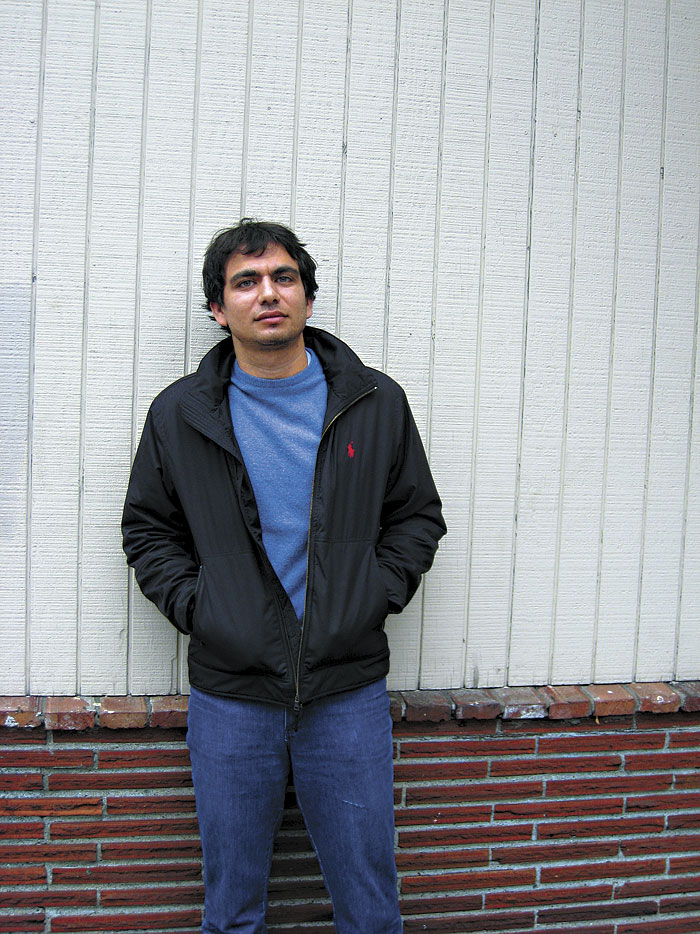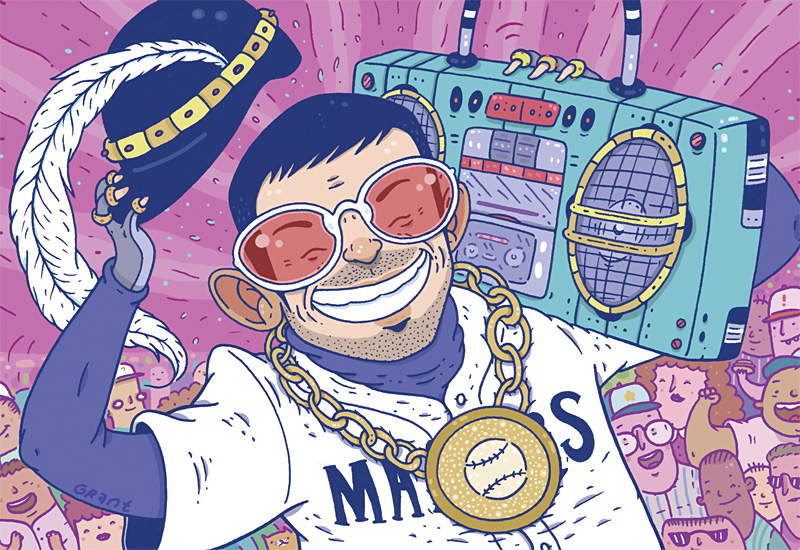In 2001, Nathaniel Friedman was a freelance music critic for Philadelphia Weekly with a penchant for ornate prose. A co-worker informed him that at a staff meeting, an editor held up one of Friedman’s pieces and addressed the publication’s interns. “If you want to get published here,” he said, “don’t write like this guy.”
Four years later, Friedman co-founded the group basketball blog, FreeDarko. Five years later, he was writing an American Studies master’s thesis at the University of Texas, analyzing his own FreeDarko writing. Six years later, he dropped out of his Ph.D. program to blog full time. And seven years later, he’s celebrating the release of the collective’s first book, FreeDarko Presents…The Macrophenomenal Pro Basketball Almanac: Styles, Stats, and Stars in Today’s Game (Bloomsbury Publishing, $23). While still dabbling in music and pop-culture criticism, Friedman, now a Seattle resident, has established himself as a pre-eminent basketball scribe—pen name, Bethlehem Shoals.
FreeDarko was born of a fantasy basketball league in which Friedman and several friends would write long message-board essays about NBA players. In January 2005, they decided on a lark to turn those essays into a blog and “name it after a random European player,” as Friedman puts it. Friedman suggested “Skita Time” after Nikoloz “Skita” Tskitishvili, a 7-foot Georgian teenager with little basketball experience who was drafted by the Denver Nuggets largely because of his height and the agility he developed as a youth devoted to Georgian folk dancing.
Instead the group settled on “FreeDarko,” launching their blog with a petition for more playing time for Darko Milicic, a forlorn 18-year-old Serbian transplant stuck on the Detroit Pistons’ bench. One of the collective’s members, Shoefly, analogized their plight to that of Alaska’s early gold seekers, calling the group “Masters of the Klondike.” “Though the wilderness is vast and terrible, we seek the opportunity to sally forth and test our mettle…We seek to free Darko Milicic!”
Milicic was just an excuse to extrapolate from the NBA a series of grand, florid narratives that have taken FreeDarko from obscure Web oddity to hoop-world institution, seemingly linked by every basketball blogroll and appearing in places like deadspin.com and even McSweeney’s. Theirs is a unique brand of sportswriting, light on numbers and heavy on sociopolitical musings, absurdist metaphors, tragic figures, and mythology. Consider the opening to the book’s section on the league’s flamboyant players, entitled “Uncanny Peacocks: Cutting Through the League with Idiosyncratic Flair”:
“Few of us can imagine the life of a peacock: an animal dressed in finery who, beneath it all, desires simply to hunt and fuck like any other hardy organism. In the courts of ancient Persia, they roamed the lawns as decoration. Much later, at a predominantly Jewish school in Dallas, these birds were employed to stand guard against intruders. They sparkle in the light, but that light drives them to kill, just as their beauty lends itself to luxuriance. But this species is not Nature’s ruse, or a vehicle for her crassest whimsy. Instead, it is death and beauty rolled up into one, a mending of the very division that so delighted Eve and Adam.”
“A lot of how I watch basketball is very impressionistic,” concedes Friedman.
While Friedman is the most prolific FreeDarko contributor—he also writes for the basketball magazine SLAM, The Nation, SportingNews.com, and Slate, among others—he isn’t the only one. Co-authoring the book were scribes Dr. Lawyer IndianChief and Brown Recluse, Esq., statmaster Silverbird5000, and illustrator Big Baby Belafonte, who provides bright, lighthearted visuals—mock-dramatic, angular caricatures and style-guide action strips in which players’ heads are replaced by objects to which their moves are analogized.
A child of famously basketball-obsessed Chapel Hill, North Carolina, Friedman now finds himself in a city that lost its NBA team and harbors a grudge against the league. He moved here in the summer of 2007, accompanying his girlfriend, Amelia Abreu, who enrolled at the University of Washington’s Information School that fall. Less than a year later, the Sonics left. “I’m a basketball writer whose stock-in-trade is writing about obscure players that no one cares about,” he says. “I thought I was at least coming to a city with an NBA team.” But the beauty of being a nationally recognized basketball writer—particularly one with such a unique voice—is that you don’t need a local beat.
“At first, when no one was reading [the blog], I tried really hard to be strange and out there,” he says. “Then, especially as I started getting paid to do this, I stopped trying, but the writing turned out that way anyway.” He says he was “majorly influenced by imperfect translations of Russian literature. They contributed to my sense that overwritten prose can be both moving and hilarious.” Asked to compare his style to a basketball player’s, Friedman names the Spanish national team, a scraggly bunch that transforms into an audacious, preening circus on the basketball court. Uncanny peacocks indeed.







